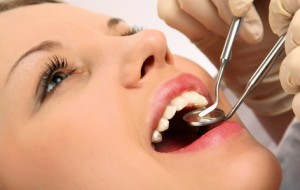
Also called prophylaxis, professional teeth cleaning involves the removal of mineralized plaque which is known to many as tartar, which can be found near the base of your teeth. You should be aware that despite proper dental hygiene, you will still have these deposits on your teeth, which is why dental cleaning is a must every year. If you have been remiss in your dental hygiene routine, you will need more than just the removal of tartar from your teeth, with procedures like scaling, debridement and polishing becoming part of your treatment.
What to Expect
When you have your teeth cleaned by a dental professional, what happens is dependent on how much plaque and tartar need to be removed from your teeth. If you have been following instructions, and have been keeping your teeth clean, as well as keeping to your dental cleaning schedule religiously, then you won’t have much of a problem with having your teeth cleaned.
When you have your teeth regularly cleaned, all you will really need is prophylaxis. Your dentist will use fine hand instruments, a polishing cup and paste, and an ultrasonic scaler to take care of the slight plaque buildup on your teeth. Usually, when a person is determined to only need a prophylaxis, they have healthy gums, no periodontal disease, no bleeding sites and no gum pockets.
When you don’t have your teeth cleaned for over a year or so, you will need what is called a debridement. This is when tartar buildup is rather heavy in many areas of your mouth, resulting in the need to use tools like a micro-ultrasonic scaler and hand tools. There is a possibility of pain when this is being done, so the patient may be given the option to have local anesthetic or numbing medicine applied to the area before the procedure is started.
When there is infection in the area, it might be suggested that the patient undergo what is called a gingival bacterial reduction procedure. The instruments used to undertake such a procedure include the tools used for both a prophylaxis and a debridement, with laser light added to this combination. This is often performed when gums are puffy, bleeding, and red.
The importance of having your teeth cleaned regularly by your dental professional will be stressed again after any of these procedures, with the suggestion for visiting a dentist sooner rather than later being emphasized. Having your teeth cleaned more often and when your dentist tells you that you should, will help prevent gum disease, the heavy build-up of tartar, and the need for more serious treatments for your teeth.
- St. Lawrence Dentistry Looks Forward To St. Patrick’s Day! - March 12, 2025
- Understanding Dental X-Rays and Radiation: What You Should Know - January 13, 2025
- Happy New Year from St. Lawrence Dentistry! - December 30, 2024









